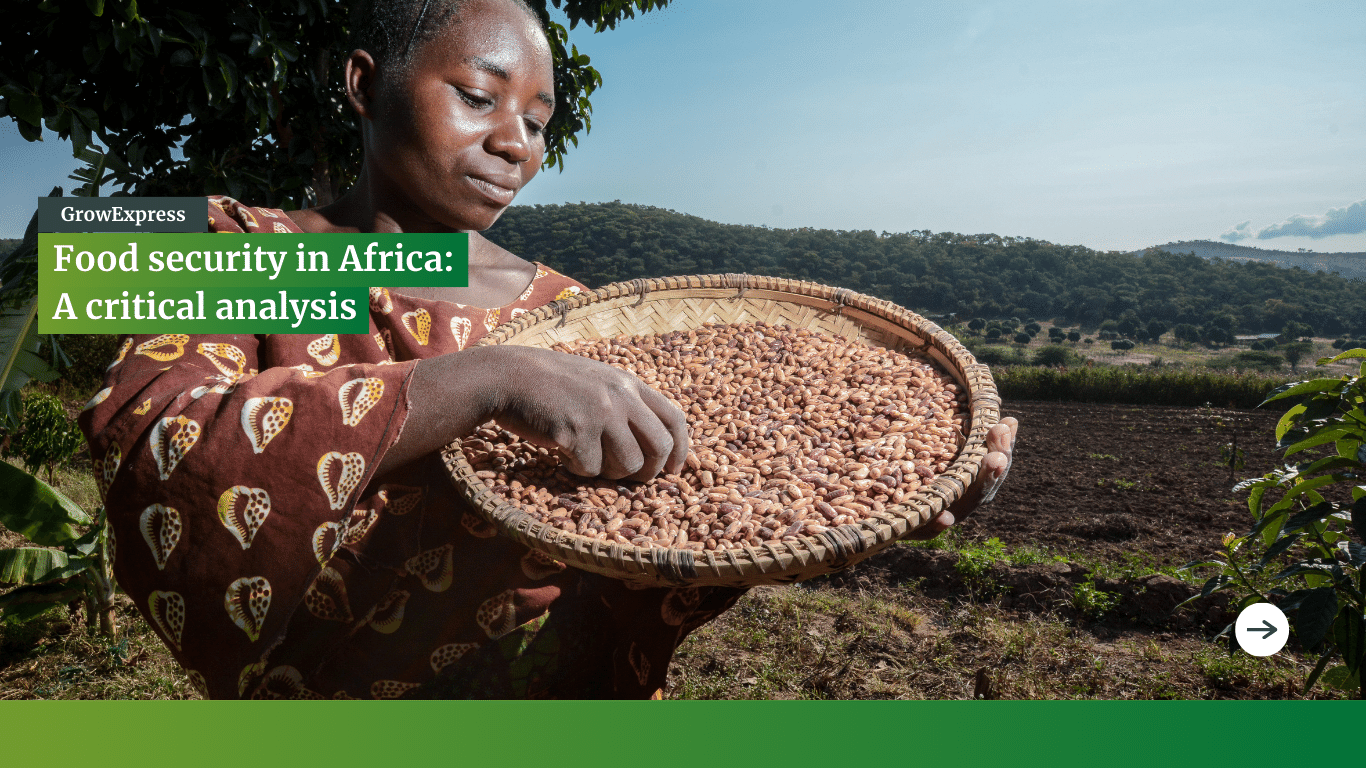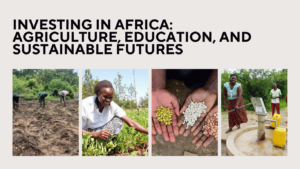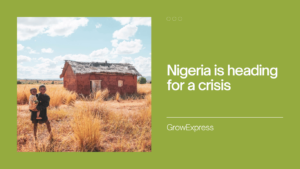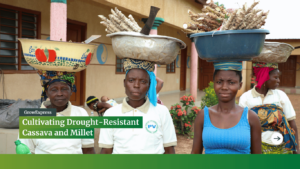Food security in Africa remains one of the most pressing issues of the 21st century. Despite notable progress in some regions of the continent, the number of people affected by food insecurity is alarmingly high. According to a report by the Food and Agriculture Organization (FAO), 675 million people in Africa live in food insecurity. Estimates suggest that by 2030, Africa could have the highest malnourished population in the world at 51.5 percent if current trends continue.
GROWEXPRESS supports the sustainable transformation of agriculture in Africa to improve food security. The project promotes commercial agriculture through environmentally friendly methods and modern technologies. It trains smallholder farmers on a model farm so they can apply effective and sustainable farming methods.
With organic farming and modern technologies, GROWEXPRESS manages thousands of hectares for various crops such as maize, soybeans, rice, and sesame. Productivity is increased through adapted crop rotations and the use of local seeds. Harvests are stored in modern warehouses to minimize post-harvest losses.
GROWEXPRESS also invests in indoor cultivation to grow seasonal and non-native plants without pesticides. These approaches contribute to a stable and secure food supply, thus supporting food security in Africa.
Challenges of Food Security in Africa
What are the causes of this food insecurity? Discussion revolves around governmental responsibility and initiatives contributing to improved food security. The causes of food insecurity in Africa are diverse, ranging from climatic conditions to political instability. Droughts, floods, and other extreme weather events significantly affect agricultural production. Additionally, conflicts disrupt food supply chains and lead to displacement and destruction of agricultural infrastructure.
FAO statistics show that food insecurity is particularly pronounced in rural areas of Africa, where access to resources, education, and health services is limited. Government responsibility for addressing these challenges is therefore enormous. However, despite the critical situation, food security has not always been at the forefront of international summits or political discourses.
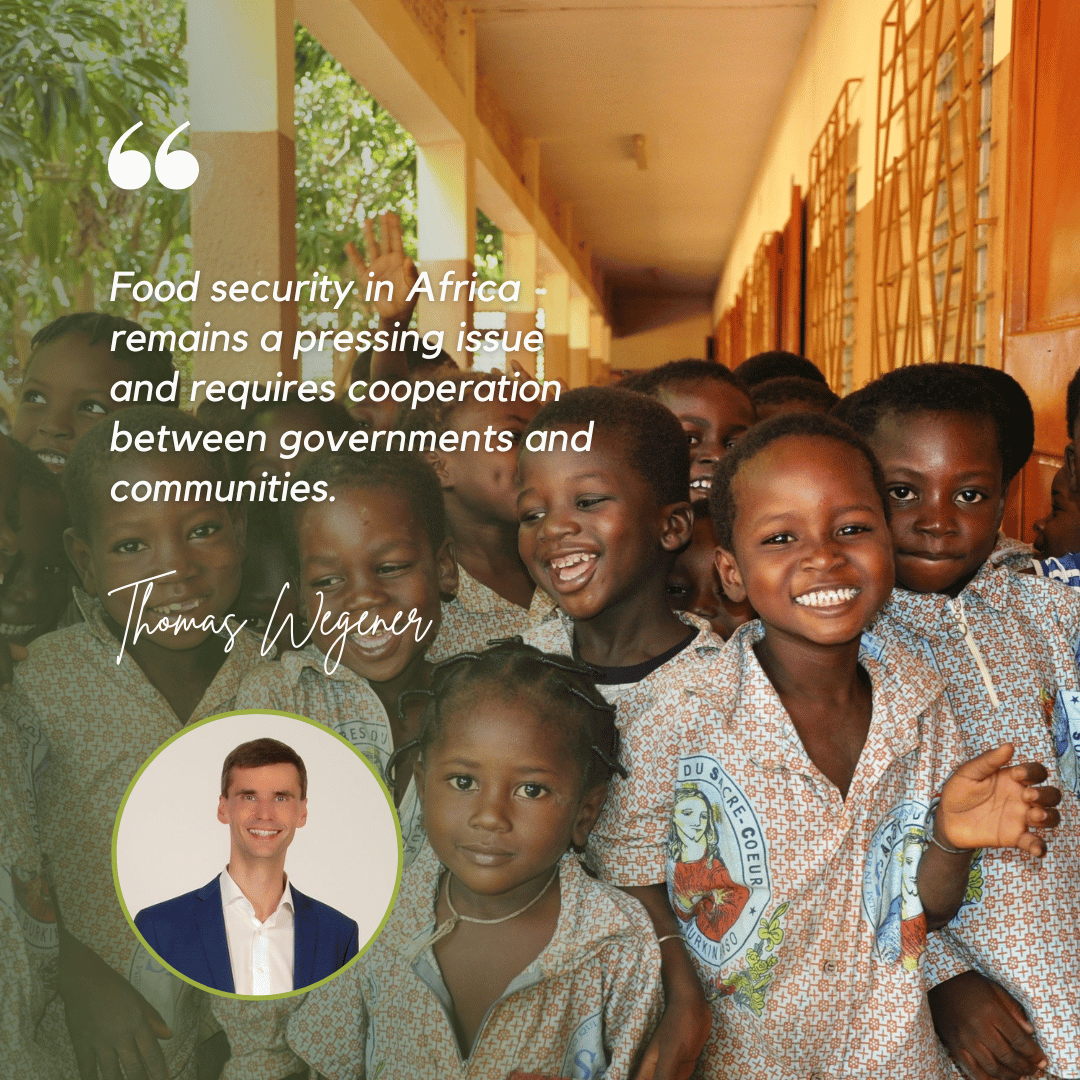
Government Responsibility and Implementation Challenges
Government responsibility plays a crucial role in food security. Governments must develop strategies to increase food production, ensure access to healthy food, and promote sustainable agricultural practices. However, this responsibility is hindered by structural challenges stemming from historical and political factors.
Colonial policies have often led to a unilateral focus on export crops, negatively impacting local food production for consumption. These historical imbalances persist to this day, exacerbating food insecurity.
Initiatives for Food Security
Despite these challenges, there are positive developments and initiatives contributing to improved food security. Projects like „GrowExpress,“ which promote modern agricultural techniques in Africa, demonstrate how innovation and technology can increase productivity. These initiatives show that local communities can improve their food security when provided with the necessary resources and support.
Additionally, issues such as food sovereignty are gaining importance. Communities and organizations advocate for more control over their food production and promote sustainable practices. These approaches can help reduce dependence on imported foods and strengthen food security.
The Way Forward
To ensure food security in Africa, governments and international communities must collaborate. The challenges are complex and require coordinated efforts that consider both short-term solutions and long-term strategies. Sustainable agriculture, access to education and health services, and strengthening local communities are key elements on the path to a secure and sustainable food supply in Africa.
The success of these efforts depends on the determination and commitment of all stakeholders. By integrating technology, sustainable practices, and inclusive policies, we can create a future where food security becomes a reality for all Africans.
Responsible under the Press Law:
Thomas Wegener – Blogger and Supporter of GrowExpress as a Social Commitment
Contact:
GrowExpress Limited
Kingsley Ekwueme
Managing Director – GrowExpress Ltd.
Cocoa House, Dugbe
200263 Ibadan
Nigeria
Tel .:+234 7031135981
Mail: AtYourService@growexpress.biz
Web: https://growexpress.org
Company Description:
The GrowExpress Ltd. office is located in Nigeria, Cocoa House, Dugbe, 200263 Ibadan. Completed in 1965 at a height of 105 meters, Cocoa House was once the tallest building in Nigeria and the first skyscraper in West Africa. It is located in Dugbe, one of the major commercial areas in Ibadan, Oyo State, Nigeria. The company GrowExpress Ltd. manages an estate of 800 hectares approximately 200 km north of the megacity Lagos in Nigeria. Further information at: https://growexpress.org
Press Contact:
GrowExpress Limited
Kingsley Ekwueme
Cocoa House, Dugbe
200263 Ibadan
Nigeria
Tel .:+234 7031135981
Mail: AtYourService@growexpress.biz
Web: https://growexpress.org

